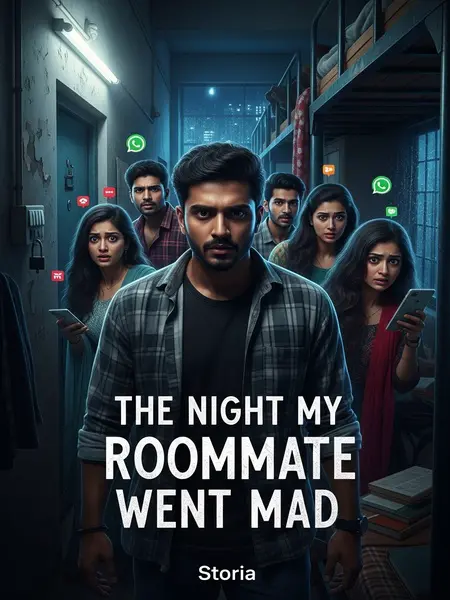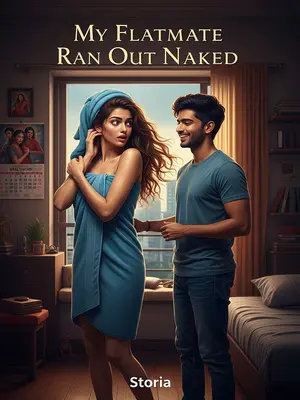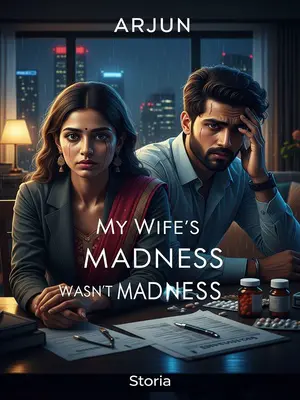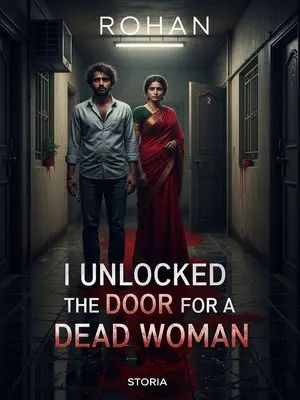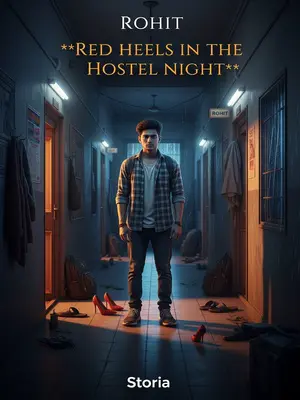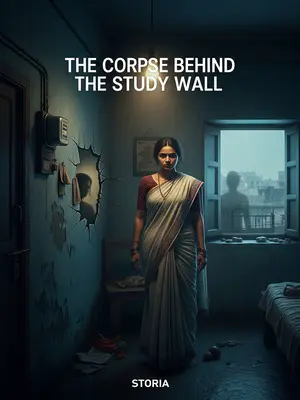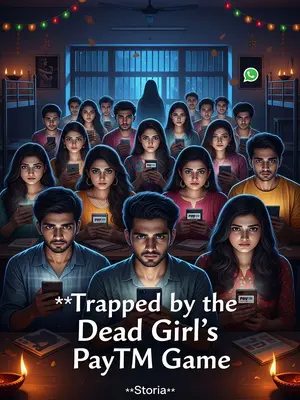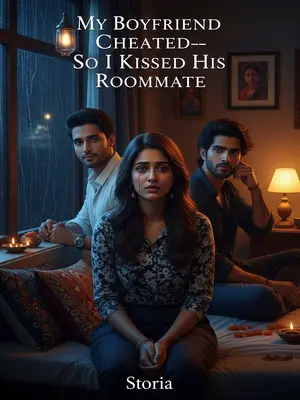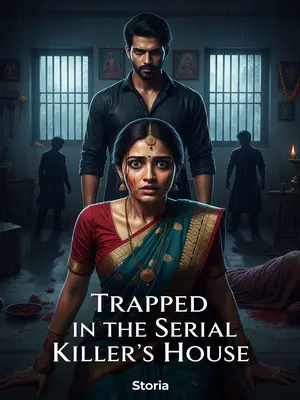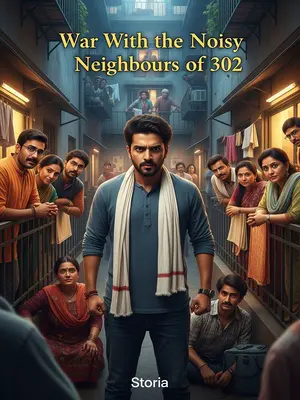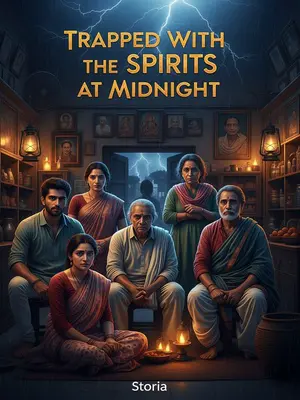Chapter 11: Death and the Spread of Madness
Just then, the corridor suddenly fell silent.
The change was so sudden, it was almost deafening. The only sound was the buzz of the tube light and the distant noise of a pressure cooker whistling in the mess below. Everyone sensed that something had happened.
I looked through the peephole and saw that Arjun had ripped open his own belly—his intestines spilling out onto the floor.
The sight was so gruesome, I staggered back from the door, clutching my mouth. Blood and viscera glistened in the corridor light, pooling around Arjun’s feet. Kabir gagged, while Aman turned away, tears streaming down his face.
I immediately tagged the warden:
"Uncle Sharma, go take a look! He’s dying—his guts are out!"
I could barely type, my hands shaking so badly. My message was full of typos, but the urgency was clear. The group exploded with replies: "What? Are you serious?", "Sharma ji, do something!" People were now truly panicking.
Arjun collapsed on the floor. At some point, the mirror in the stairwell had shattered.
The glass was everywhere, reflecting the flickering tube lights and casting eerie patterns on the blood-streaked tiles. The corridor looked like a crime scene from a thriller movie. The air was thick with the smell of blood and fear.
A huge shard of glass was stuck in Arjun’s stomach, and he was gripping another shard, his hand bleeding profusely.
His hands shook violently, the shard slipping from his grasp, blood pouring down his wrists. Even in his agony, he seemed driven by some compulsion, some need to keep going. It was horrifying to watch.
Arjun could finally speak, but he was still out of his mind.
He muttered, voice hoarse and broken. The words barely made sense, but his pain was unmistakable. It was as if he was fighting some invisible enemy only he could see.
He used the glass to scrape bloody wounds onto himself:
"Scales, I don’t want scales. I have to scrape them all off."
His words echoed in the corridor, sending shivers down my spine. For a moment, I wondered if he was seeing something we couldn’t. Was it a hallucination, or something worse?
"Scrape them all off."
He repeated it like a mantra, as if those words alone could save him. Each repetition grew weaker, more desperate, until it was just a whisper.
Arjun’s voice grew weaker and weaker—he was clearly dying.
His breathing slowed, the blood pooling around him. We all knew there was nothing anyone could do now. The helplessness was suffocating.
This scene was posted in the WhatsApp group, sending chills down everyone’s spine.
Someone braver than the rest had recorded a video through their peephole and posted it. The group chat exploded with cries of horror, disbelief, and sorrow. Even the most hardened among us were shaken.
What we saw was too bizarre, beyond anything we could comprehend.
There were no words for it—just stunned silence. Even the bravest jokers in the group were quiet now. It was as if the whole building was mourning together.
Someone spoke up:
"Did he offend something? Like…"
The message trailed off, but everyone knew what was being implied. In India, stories of curses, spirits, and black magic are never far from anyone’s mind.
He didn’t finish, but northern superstitions started circulating.
The group chat lit up with stories—"Maybe someone did kala jadu on him," "What if he saw a chudail in the mess?" The old fears resurfaced, as they always do in times of crisis.
Even our own roommates were half believing, half doubting.
Sneha whispered, "You never know, yaar. My nani always said these things happen at night." Kabir scoffed, but even he didn’t sound convinced. I felt a strange mix of fear and skepticism.
Aman asked me:
"Bro, do you think Arjun really…"
His question hung in the air, unfinished. The others leaned in, waiting for my answer. I didn’t know what to say, so I did what I always did: tried to sound rational.
I shook my head:
"I don’t think so. We’ve all heard those legends, but no one’s ever seen anything like that."
"Yaar, kahaniyan toh bahut suni hain," I said, "par aaj tak kisi ne sach mein kuch dekha hai kya?" I tried to sound confident, but my voice trembled. Deep down, I wanted to believe there was a logical explanation.
"Not just me—maybe no one in this whole college has ever seen anything supernatural. How could it be such a coincidence?"
"Itna bada college hai, kabhi kisi ne kuch dekha hota toh sabko pata hota." My words were meant to reassure, but I wasn’t sure if anyone, including me, believed them.
The others agreed.
Kabir nodded, Aman managed a weak smile, and Sneha sighed. For a moment, it felt like things were almost normal again.
Only Rohan looked worried:
"This is bad. If it’s an infectious disease, just looking at these symptoms… we’re all doomed."
Rohan always had a way of making things sound worse. He started listing symptoms from some news article he’d read, painting the bleakest possible picture. The rest of us rolled our eyes, half annoyed, half grateful for the distraction.
The others rolled their eyes at him and said nothing.
It was easier to ignore Rohan than to argue. For now, we were all too tired to fight. The silence returned, heavy as ever.
He always had a way of making things sound worse.
It was almost comforting—at least some things hadn’t changed.
Not long after, the warden sent a message in the group:
"Don’t come out. I’ll go check on the madman’s condition."
The message brought a strange relief. At least someone was taking charge, even if it was only Sharma uncle. The group chat calmed down, everyone waiting for updates.
That finally quieted a lot of students—no more cursing the staff.
For once, the group chat was silent. No memes, no complaints, just anxious waiting. The whole hostel felt suspended in time.
The warden walked from the first floor up to the third, holding a hammer from the hostel toolkit.
Someone posted updates: "He’s on the stairs now," "He’s got the hammer," "Looks so scared!" It was almost like watching a live cricket match, everyone reporting every move. The tension was unbearable.
In just a few minutes, Arjun was already dead, beyond saving.
His corpse lay in the middle of the corridor.
People in the group relayed everything in real time through their peepholes.
The updates kept coming: "He’s not moving," "Sharma uncle’s close now," "Blood everywhere." The whole hostel was watching, helpless and horrified.
The warden reached the third floor, cautiously approaching the body.
His chappals squeaked on the wet floor, echoing louder than his footsteps. His footsteps echoed, the hammer held like a weapon. He stopped, took a deep breath, then crept forward, each movement slow and deliberate. Even Sharma uncle, who always acted tough, looked terrified now.
He gripped the hammer tightly, afraid the corpse might suddenly move.
You could see it in his face—fear mixed with determination. The hammer shook in his hand, sweat pouring down his forehead. It was like a scene from a cheap horror serial, but this was all too real.
But before he got close, the warden suddenly vomited.
The sight and smell overwhelmed him. He doubled over, retching onto the floor. The sound echoed through the hostel, setting off a chain reaction—several others in the building started gagging too. Even we had to turn away from the door, the image burned into our minds.
The stench of blood and the gruesome scene were overwhelming.
It was a smell like nothing I’d ever known—sharp, metallic, mixed with the tang of fear and sweat. It clung to the walls, seeped into our clothes. I knew I’d never forget it.
Ordinary people had never seen anything like this.
No movie, no story had prepared us for this. We were just students, hostelites trying to survive exams, not some horror story. The reality of it all hit us hard.
As he vomited, the whole hostel echoed with the sound of retching.
It was almost comical, if it hadn’t been so tragic. Room after room, the sounds of gagging and coughing filled the air. Someone typed in the group, "Lagta hai sabko ulti aa gayi."
For us students, it was even harder to bear.
I pressed my face into my pillow, trying to block out the sounds and the smell. Kabir paced the room, muttering prayers. Sneha started crying softly, while Aman just stared at the wall, lost in shock.
The warden shook his head, but still forced himself to move forward, step by step.
He wiped his mouth, straightened his kurta, and took another shaky breath. Even though he was scared, he knew he had to do his duty. It was the bravest thing I’d seen all night.
Even though it was early summer, the heavy smell of blood had already attracted swarms of mosquitoes and flies.
The buzzing was relentless, a constant reminder of the chaos outside. I could see them through the cracks in the door, black clouds swirling above the body. It was another layer of horror to an already unbearable night.
He slapped at his neck, trying to drive the insects away.
His movements were frantic, desperate. The rest of us scratched at our own arms, suddenly hyper-aware of every itch, every tickle. It was impossible to relax.
We stared intently at the warden and the corpse.
None of us could look away. It was like being trapped in a nightmare, waiting for something even worse to happen. The room felt smaller, the walls closing in.
But in the next second, the warden suddenly froze.
His body went rigid, the hammer clattering to the floor. His face twisted in pain, eyes bulging. For a moment, time seemed to stop.
I pressed my face to the peephole, trying to see what happened.
I held my breath, peering through the tiny circle. The world outside was warped, unreal. Kabir hovered behind me, whispering, "What’s happening, bro?"
Suddenly, the warden’s face filled the peephole—his eyes rolled back, white foam bubbling from his mouth—he’d gone mad too.
The last thing I saw was his mouth opening in a silent scream, his eyes empty. Then, everything went dark.
Inside our room, we waited—hearts pounding—wondering who would be next to lose their mind.
